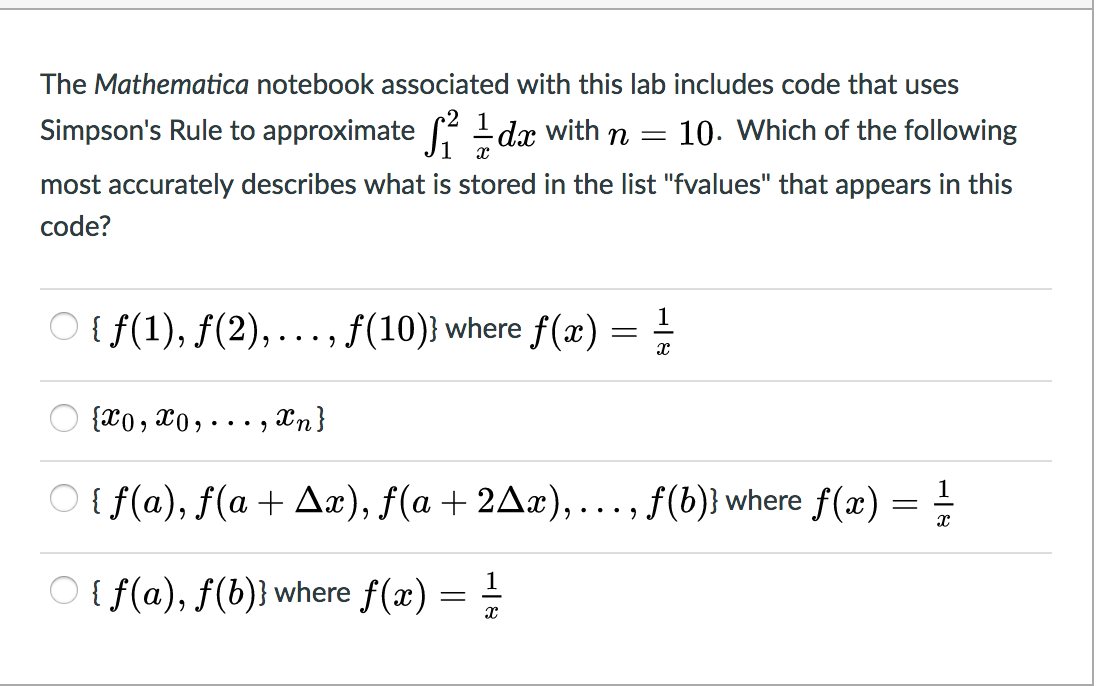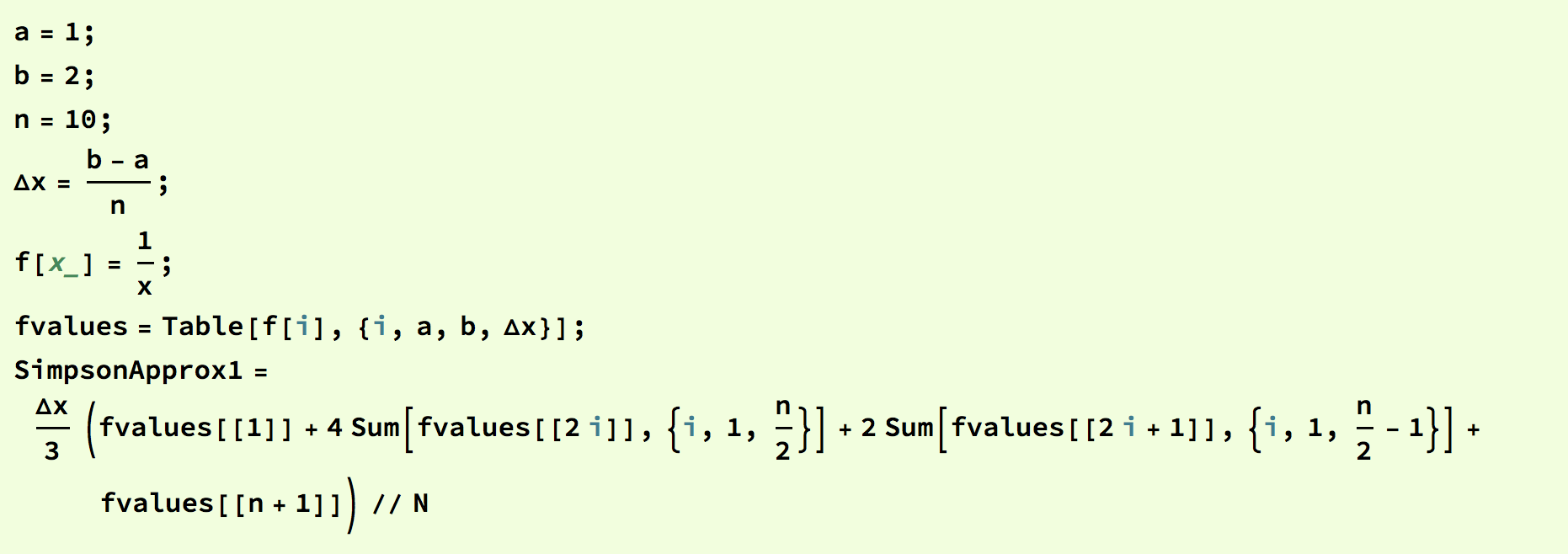I would really appreciate it if someone could help me with this multiple choice question, I don't have any more attempts and I already got wrong what I thought the answer was ({x0, x0, .., xn} is not right!).
Im new to Mathematica, but I figure this should be a relatively easy question to answer for someone who knows what you're doing.
Extract from the Mathematica notebook referred to above added.





Tableand tell us if anything is unclear to you. See in particular the first few examples. $\endgroup$